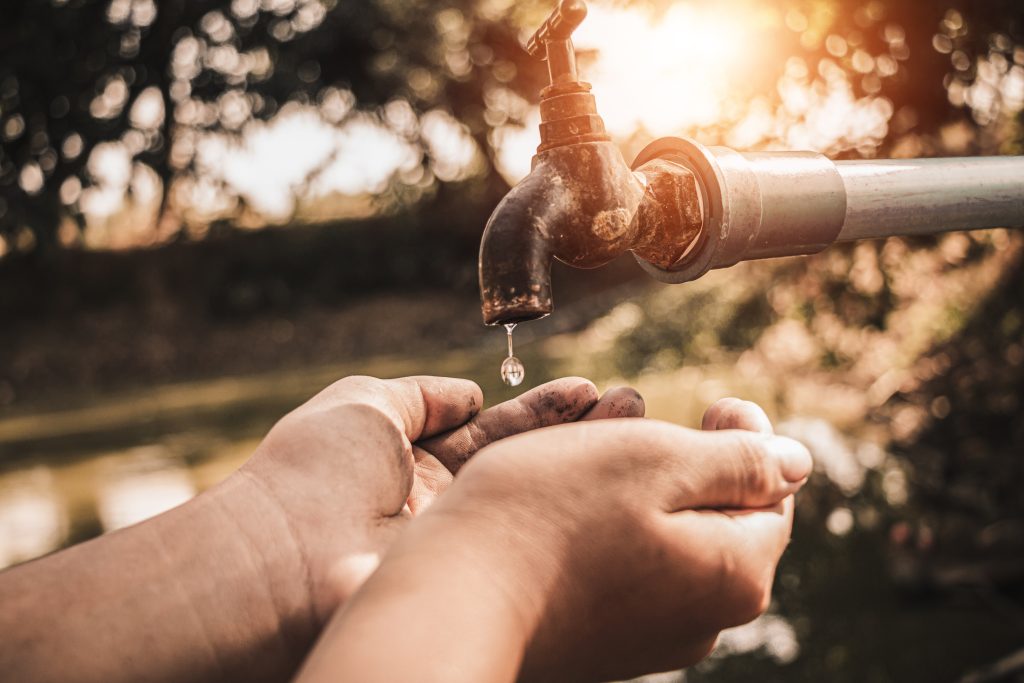You can also listen to this podcast on iono.fm here.
JEREMY MAGGS: As the president visits Hammanskraal today, scene of the deadly cholera outbreak, a new report says, drinking water produced from some municipal water treatment systems are posing a potential health risk to consumers. As we thought, the problem is much bigger than just one geographic location. Leading the show is JULIUS KLEYNHANS from the NGO, WaterCAN. So you can’t be surprised then surely, at what this report has revealed?
JULIUS KLEYNHANS: No, we’re not, we’ve seen this over a decade of deterioration. There’s over 1000 of these water supply systems in South Africa, and yet we haven’t seen proper monitoring of the water quality being taking place year on year. Things have really been deteriorating because no one’s being held accountable. If you look at the Consumer Protection Act, when you buy a bottle of water it has to tell you what’s in it but the biggest supplier of water in the country doesn’t tell you what the quality is. So it’s a big issue.
JEREMY MAGGS: Why are we failing when it comes to monitoring?
JULIUS KLEYNHANS: Look, I think there are a variety of things, ethic and will is definitely a big thing to this. We’ve seen laboratories being left behind and it’s been deteriorating. There’s a lack of skills. There’s a lack of funding and proper management. I think if you look at the water management in general in South Africa, it’s really a leadership issue and that’s where it needs to start. Then the lack of monitoring, enforcement and compliance, because if you don’t do your job, which is legislatively required, then you need to face the consequences. So it’s really a lack of accountability that has led to what we’ve seen today that people and their health are at risk.
JEREMY MAGGS: What happens if the problem continues, if the trajectory remains the way it is?
JULIUS KLEYNHANS: It’s significant because there’s increase in demand and obviously there are repercussions regarding wastewater, which is also polluting our natural resources where we abstract this water from.
So at the current trajectory, it will have severe economic and potentially even food security related issues in the future.
But sadly, we are seeing that people in general are at risk [with their] health. If we look at the water quality results that have been publicised, they’re talking about around 50% of drinking water systems that don’t comply to microbiological parameters all the time. Which means there are increments in time where people are drinking water that may contain bacteria that might have devastating consequences, whether it’s E. coli and diarrhoea and all those kinds of things, to even cholera outbreaks that might occur. So there might be severe health implications that can lead to death and loss of life.
JEREMY MAGGS: Do you think that municipalities are awake, are aware of the problem?
JULIUS KLEYNHANS: No, not at all. I think if you look at those who are awake, which is really around 11% to 14% of municipalities, and most generally in the Western Cape, they do obtain Blue Drop compliance and Green Drop compliance. You can see that they are managing their infrastructure well. They are providing good services to their communities and it’s the same municipalities that also have low increments of water loss.
So in general, I don’t think that there’s an appetite. In fact, I think in general, if you look at water management at municipal level, they are ill-equipped, not just from a financial point of view, but a lot of the individuals who are supposed to execute their jobs are not necessarily trained and I don’t think there are any repercussions to that.
Then there’s also a significant lack of maintenance and future planning and implementation in our municipalities, which I think is evident across the country, not even in the water sector only.
But I think one of the big problems that good water managers and teams face in municipalities is that water levies and tariffs that you pay for, that revenue is not necessarily ring-fenced for that purpose, but it falls into the pot, and it’s distributed to other elements and means. So ja, it’s got a bit of a negative ripple effect but if municipalities were in tune and on top of proper drinking water distribution and supply, we wouldn’t have seen these very dire and alarming results.
JEREMY MAGGS: Just a final and a quick one, if you don’t mind. As we are having this conversation, President (Cyril) Ramaphosa is in Hammanskraal today visiting the water treatment plant. What would you like to hear him say on this particular issue?
JULIUS KLEYNHANS: Look, I would like him to not say much.
I would like him to actually rock up there with a team that actually starts working and fixing the problem.
But what he should be saying is exposing the names of the individuals who have received the contracts and who have oversight over fixing the Rooiwal wastewater treatment works and the Temba drinking water treatment plant in Hammanskraal because this problem has been highlighted over a decade ago, a lot of billions of rands have been allocated to fix the problem. Yet we are sitting here with the same problem today. So I would love for him to prove that heads will roll, and that people get arrested, because there’s been corruption and fraud at the expense of the people.
JEREMY MAGGS: JULIUS KLEYNHANS, thank you very much.

